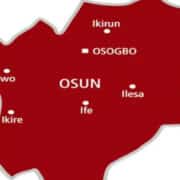Former Vice President Atiku Abubakar has taken a swipe at President Bola Tinubu, describing his latest use of presidential pardon as a reckless move that weakens justice and emboldens criminality.
In a strongly worded statement shared on his X handle yesterday, Atiku said the presidential prerogative of mercy is meant to temper justice with compassion — not to trivialise grave offences or mock the nation’s justice system.
President Tinubu had, on Thursday, granted clemency to 175 individuals, including the late Major General Mamman Vatsa, Major Akubo, Professor Magaji Garba, Maryam Sanda, Ken Saro-Wiwa, and other members of the Ogoni Eight. The list also included persons convicted of homicide, illegal mining, and financial crimes.
According to the Presidency, the decision followed recommendations from the Presidential Advisory Committee on the Prerogative of Mercy, chaired by the Attorney-General of the Federation and Minister of Justice, Lateef Fagbemi (SAN).
But Atiku faulted the inclusion of offenders convicted of serious crimes, warning that such actions erode public trust in the justice system and send “a dangerous message” about the values of Tinubu’s administration.
“Ordinarily, the power of presidential pardon is a solemn prerogative — a moral and constitutional tool designed to balance justice with mercy,” Atiku said. “Regrettably, the latest pardon by the Tinubu administration has done the very opposite.”
He described as alarming the decision to free individuals involved in drug trafficking, kidnapping, murder, and corruption, arguing that it “diminishes the sanctity of justice” and undermines Nigeria’s fight against crime and moral decay.
Atiku further noted that about 29.2 percent of those pardoned were convicted for drug-related offences, calling the move “insensitive” given the country’s battle against narcotics and the growing vulnerability of Nigerian youths.
“Even more disturbing,” he added, “is the moral irony that this act of clemency comes from a President whose past remains clouded by unresolved issues relating to drug-related investigations in the United States.”
He concluded that a presidential pardon should represent moral reform, not political convenience, warning that:
“Clemency must never be confused with complicity. When a government absolves offenders of the very crimes it claims to be fighting, it loses its moral authority and encourages lawlessness. Nigeria deserves a leadership that upholds justice, not one that trivialises it.”




















Comments